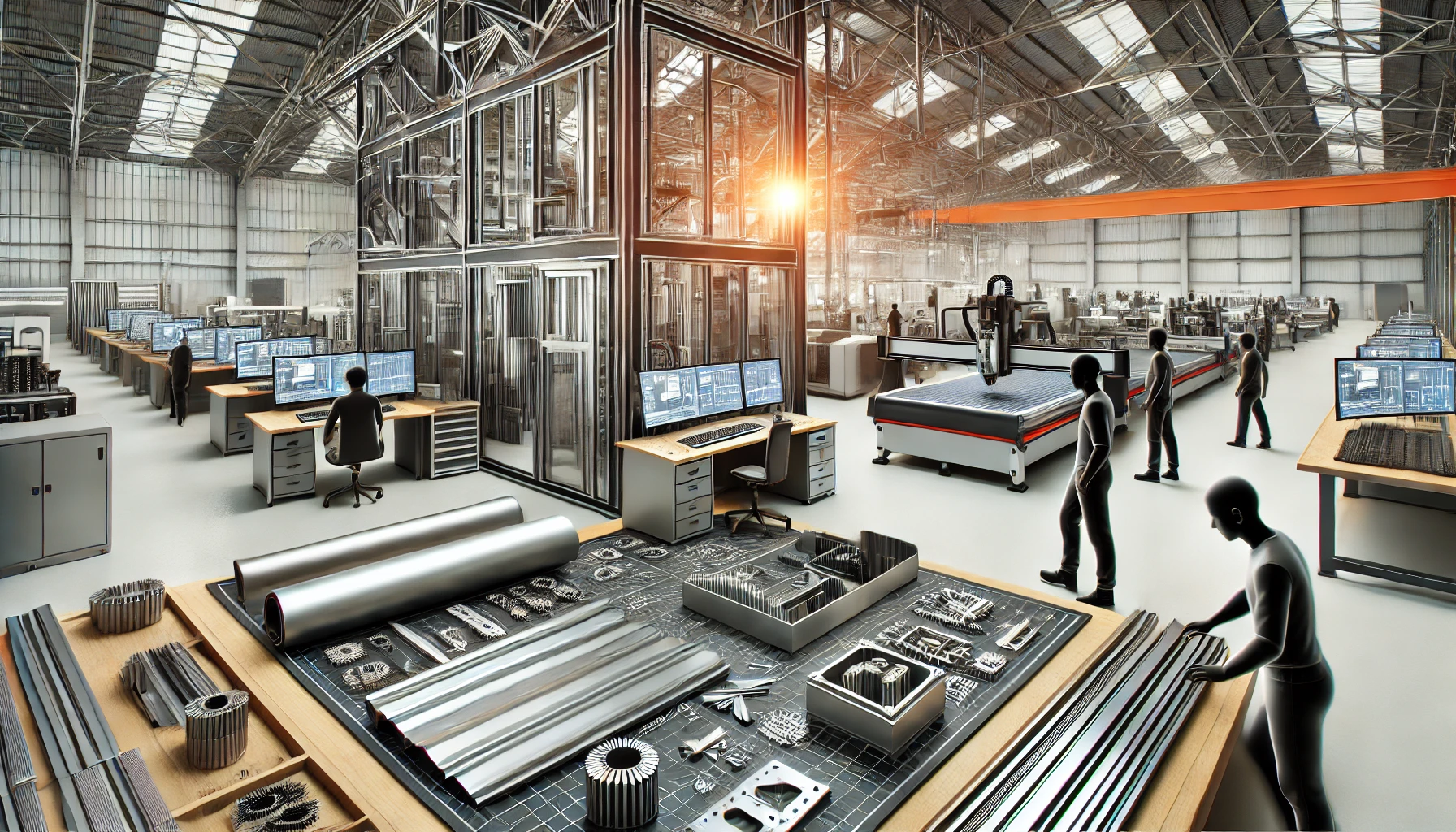metal works companies are stepping up by adopting new technologies and techniques that enhance quality, efficiency, and sustainability. Let’s take a look at some of the most notable advancements in roofing metal works fabrication that are shaping the industry today.
1. Automation and CNC Technology
One of the most transformative advancements in metal fabrication is the widespread use of Computer Numerical Control (CNC) technology. CNC machines allow for highly precise forming and bending of metal sheets, ensuring roofing components are produced with minimal errors and consistent quality. Automation has also reduced labor-intensive processes, allowing metal fabricators to handle larger volumes and maintain shorter lead times while delivering exceptional accuracy.
With programmable bend angles, CNC-controlled brakes are now capable of forming complex geometries with ease. This technology not only increases production speed but also provides greater flexibility when dealing with custom orders, which is a huge advantage for suppliers catering to diverse roofing projects.
2. Innovative Metal Alloys and Coatings
Another area of innovation is in the development of new metal alloys and coatings that offer enhanced performance for roofing applications. New alloys are being engineered to be lighter yet stronger, providing greater longevity while reducing the weight load on structures. For example, advancements in aluminum alloys have made them more corrosion-resistant, making them perfect for coastal regions where moisture and salt exposure are major concerns.
In addition to alloys, modern coatings such as silicone, ceramic, and polymer-based finishes have also improved. These coatings protect roofing materials from environmental stressors such as UV radiation, moisture, and temperature fluctuations, significantly extending the lifespan of roofing accessories.
3. Laser Cutting Technology
Laser cutting has revolutionized the way roofing components are fabricated. Unlike traditional methods, laser cutting provides unmatched precision, allowing for intricate designs and complex shapes that were previously difficult to achieve. This technology ensures clean, burr-free edges, reducing the need for secondary processing and improving overall product quality.
Laser cutting also minimizes material waste, which not only helps control production costs but also contributes to more sustainable manufacturing practices. For roofing suppliers, this means more efficient production of custom flashings, drip edges, and other specialized components.
4. 3D Modeling and Design Software
The integration of advanced 3D modeling and design software has had a major impact on the metal fabrication process. These programs allow fabricators to create virtual prototypes of roofing accessories before production begins, enabling better visualization and design optimization. By identifying potential issues early on, companies can save time and reduce costly errors.
With Building Information Modeling (BIM) becoming more common in construction, roofing metal works fabricators are able to integrate seamlessly into larger project workflows, providing accurate data and ensuring that their components fit perfectly within the overall roofing design.
5. Green Fabrication Practices
Sustainability has become an important focus for metal works companies. Recent advancements in green fabrication include the adoption of energy-efficient machinery, recycling initiatives, and the use of eco-friendly coatings. These practices not only help to reduce the environmental impact of metal fabrication but also align with the growing demand for sustainable construction materials.
Many fabricators are also working to minimize waste by using advanced nesting software, which optimizes the arrangement of parts to maximize material use. By reducing waste and improving efficiency, companies are able to produce high-quality roofing components with minimal environmental footprint.
6. Modular Roofing Components
The push for faster construction times has led to the development of modular roofing components. Fabricators are now able to produce prefabricated roofing accessories that can be quickly assembled on-site. These modular components are precisely engineered to fit together seamlessly, reducing installation time and ensuring a more efficient roofing process.
This advancement has been particularly beneficial for commercial and industrial projects where minimizing downtime is crucial. By offering prefabricated, modular solutions, metal works companies are helping roofing contractors complete jobs more quickly and efficiently.
Conclusion
The advancements in roofing metal works fabrication are reshaping the industry by bringing greater precision, efficiency, and sustainability to the forefront. From CNC automation and laser cutting to innovative materials and green practices, these technologies are enabling metal works companies to deliver higher quality products that meet the evolving needs of the roofing industry.
As we look to the future, the integration of smart technologies and continued innovation in materials will only further enhance the capabilities of metal fabrication for roofing applications. By staying at the cutting edge of these advancements, metal works companies can continue to support the construction industry with durable, reliable, and environmentally friendly roofing solutions.
